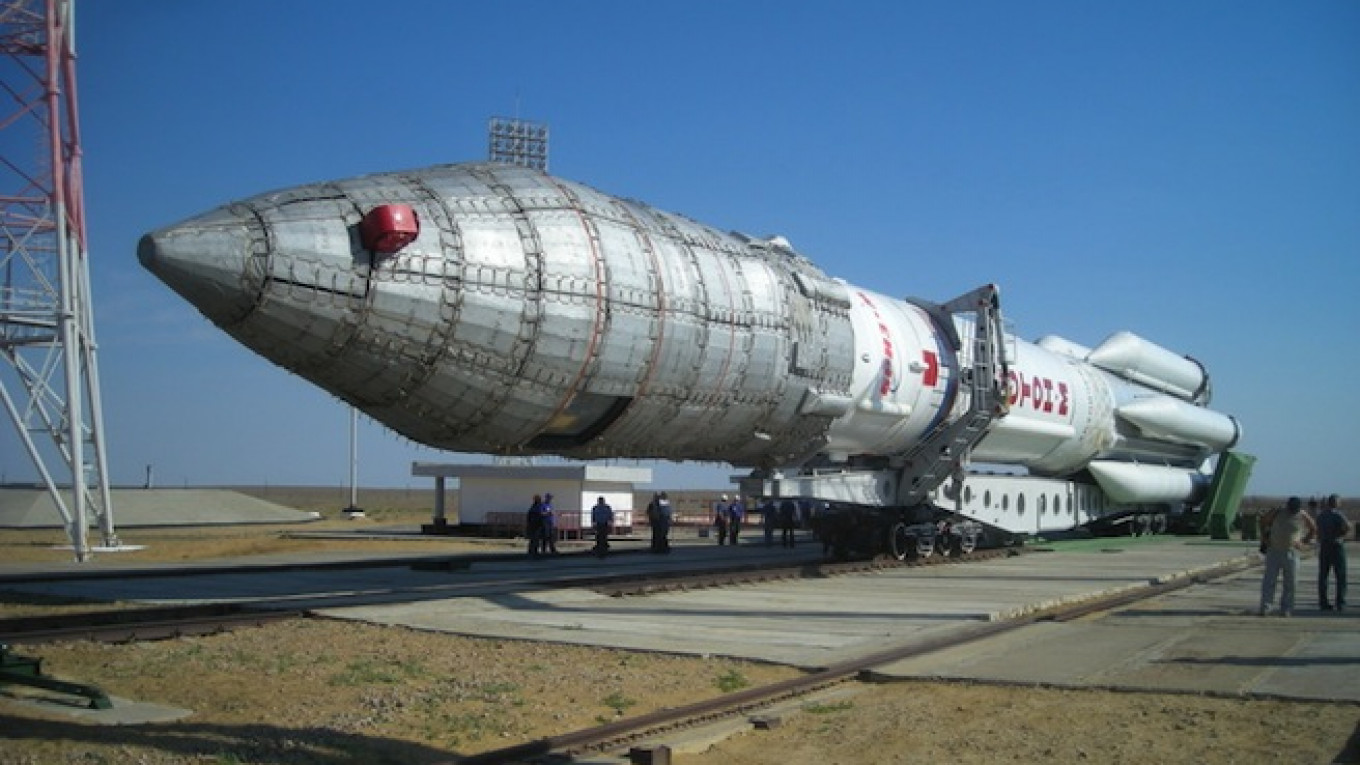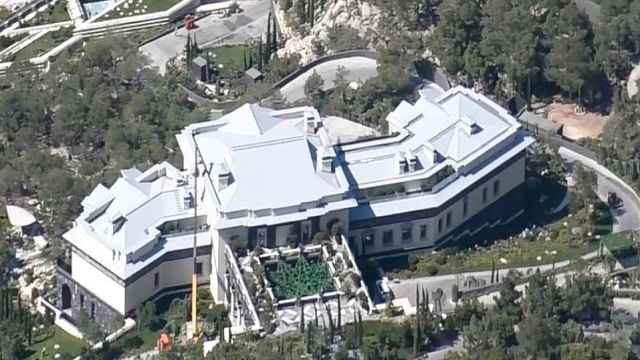Correction appended
The recent crash of an unmanned Proton-M rocket was caused by a malfunction in its third stage, Russia's top space industry official said Wednesday.
Russian media reported earlier that investigators had tentatively attributed the May 16 incident to sabotage.
The head of the Federal Space Agency, Oleg Ostapenko, said at a press conference the problem had been a faulty bearing in the turbine pump of the vernier engine, ITAR-Tass reported. But he did not specify whether carelessness or sabotage had caused the incident.
Spectacular incompetence at the assembly line was blamed for a similar incident last July, when another Proton-M was lost because three angular velocity sensors have been installed upside down and hammered in to fit, according to the official investigation.
The results of the May crash probe have been reported to the government, Ostapenko said.
All Proton-M rockets will remain grounded for an unspecified period of time, he said.
The June 25 launch of the Angara light unmanned rocket — Proton's prospective replacement — will proceed on schedule, though extra equipment inspections will be conducted, Ostapenko said.
The Russian space industry has experienced at least 20 botched launches over the past decade, despite ongoing reform.
Allegations of sabotage may be an attempt by industry generals to offload the blame using Soviet alarmist templates, according to an editorial published by newspaper Vedomosti on Wednesday.
A previous version of this article incorrectly stated that Roscosmos would be conducting a test launch of the Angara heavy rocket this June, when in fact the version of Angara being tested is the light version of the rocket. The light version of Angara will serve as the foundation for subsequent medium and heavy designs of the rocket.
See also:
Rocket Carrying Advanced Russian Satellite Malfunctions Shortly After Launch
A Message from The Moscow Times:
Dear readers,
We are facing unprecedented challenges. Russia's Prosecutor General's Office has designated The Moscow Times as an "undesirable" organization, criminalizing our work and putting our staff at risk of prosecution. This follows our earlier unjust labeling as a "foreign agent."
These actions are direct attempts to silence independent journalism in Russia. The authorities claim our work "discredits the decisions of the Russian leadership." We see things differently: we strive to provide accurate, unbiased reporting on Russia.
We, the journalists of The Moscow Times, refuse to be silenced. But to continue our work, we need your help.
Your support, no matter how small, makes a world of difference. If you can, please support us monthly starting from just $2. It's quick to set up, and every contribution makes a significant impact.
By supporting The Moscow Times, you're defending open, independent journalism in the face of repression. Thank you for standing with us.
Remind me later.






